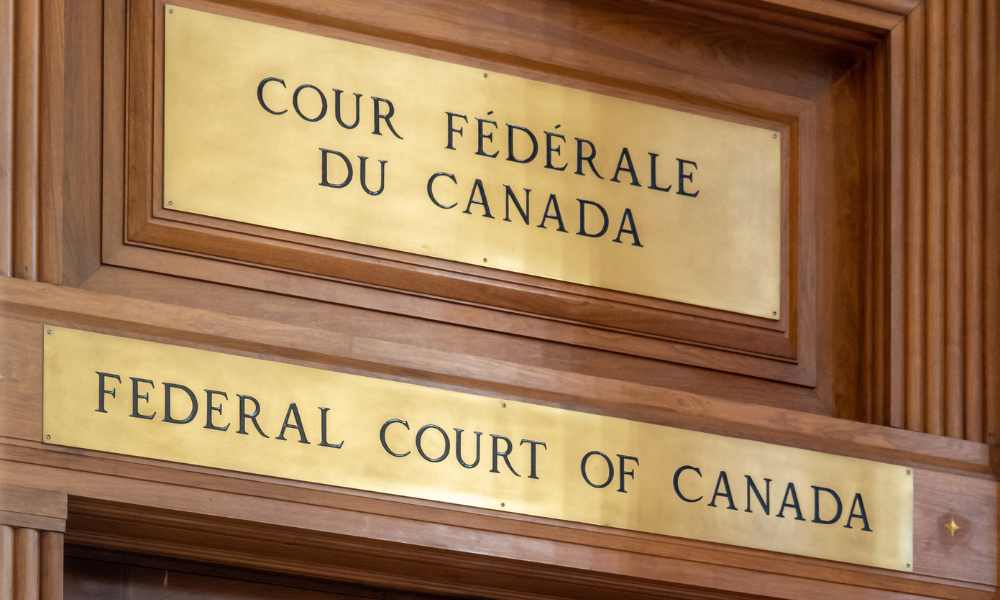
Aboriginal prisoner alleges government treated him and his spiritual beliefs differently

This week, parties involved in tax-related proceedings made appearances before the Federal Court and the Federal Court of Appeal. The Federal Court also held hearings in cases dealing with constitutional rights and the issue of inventorship in patents.
Federal Court of Appeal
The case of River Cree Resort Limited Partnership v. His Majesty the King, A-113-22 arose when the Tax Court of Canada (TCC) issued an April 2022 judgment relating to notices of reassessment imposed on the appellant. On appeal, the appellant relied on certain provisions of the Excise Tax Act, 1985. It alleged that the TCC mischaracterized the legal relationship between it and its supplier.
The appellant alternatively argued that the TCC should not have concluded that the predominant element of the supply was the exclusive right to place and to operate automated teller machines at its resort and to process the machines’ transactions. Instead, the predominant element was the provision of a financial service, the appellant said. The latest appearance in this matter was February 21.
Pudney v. His Majesty the King, A-94-19 also involved an appeal from a TCC judgment. The appellant alleged that the TCC based a January 2019 decision on an erroneous factual finding that it perversely or capriciously made or acted in a way contrary to law. The appellant confirmed to the court that she was self-represented and would be present at today’s hearing.
Federal Court
In Minister of National Revenue v. Daville Transport Inc. et al, T-189-23, the applicant filed a summary application under s. 289.1 of the Excise Tax Act on Jan. 25. The applicant wanted to compel the respondent corporation to provide certain documents and information to verify its compliance with its duties and obligations under the legislation.
This proceeding arose from the Canada Revenue Agency’s audit of the corporation under the Excise Tax Act for the period from July 1, 2016 to Sept. 30, 2020. At Tuesday’s hearing, the court ordered the respondents to provide the outstanding documentation within 30 days of the order’s issuance.
In Secure Energy (Drilling Services) Inc. v. Canadian Energy Services L.P. et al, T-1534-20, the applicant was an Alberta-based corporation in the business of providing chemicals in Western Canada for oil and gas well drilling and production. It made an application under the Patent Act, 1985.
The applicant sought a declaration that a specified individual was the inventor of two Canadian patents relating to drilling fluids and an order for the variation of the relevant entry in the Patent Office’s records to reflect this. At last Tuesday’s case management conference, the court directed the parties to propose a joint schedule for the hearing.
In Ewert v. His Majesty the King, T-2069-19, The plaintiff was an Aboriginal prisoner in the Correctional Service of Canada’s custody. He sought damages for alleged breaches of his rights under ss. 2, 7, 8, 12, and 15 of the Canadian Charter of Rights and Freedoms.
Specifically, he claimed that the defendant impeded on his exercise of freedom of expression, conscience, and religion. The defendant allegedly caused a loss of liberty, violated his right to security against unreasonable search and seizure, subjected him to cruel and unusual treatment and/or punishment, and dealt with him and his spiritual beliefs differently. The latest appearance in this matter was last Tuesday.